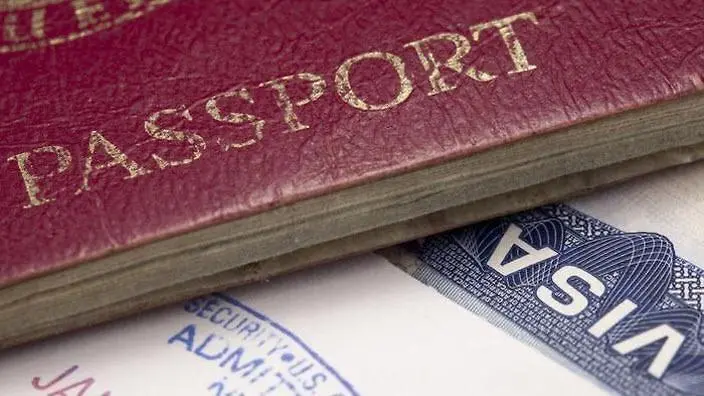Migration is the process of moving from one country to another to reside there for a prolonged period. It involves leaving one’s home country behind and relocating to a foreign country, either permanently or for a specific period. People choose to migrate for various reasons, such as economic opportunities, job prospects, educational pursuits, better quality of life, or to join family members who are already residing in the destination country. Migration can be a complex and challenging process, involving considerations such as cost of living, immigration laws, language barriers, and cultural differences. It is important to thoroughly research the destination country and understand the requirements for obtaining permanent residency or a residence permit before embarking on the migration journey.
Reasons for Migration
Migration is a global phenomenon that is driven by various factors. One of the primary reasons for individuals to migrate is the pursuit of economic opportunities. People often migrate to foreign countries in search of better job prospects and higher wages. This is particularly common in countries where the cost of living is high or where there is limited economic growth. For example, many individuals from developing countries migrate to North America or European countries in hopes of finding stable employment and improving their standard of living.
Family reunification is another significant reason for migration. Many individuals choose to migrate to be with their family members who have already settled in a foreign country. This is especially prevalent in countries that have a high immigrant population. For instance, individuals from Asian countries may migrate to the United States or Canada to be reunited with their family members who have already obtained permanent residency or citizenship.
Education is also a major motivator for migration. Many individuals migrate to foreign countries to pursue higher education opportunities that may not be available in their home countries. Popular destinations for students include the United Kingdom, the United States, Canada, and Australia, which are known for their prestigious universities and academic programs.
Conflict or persecution is another reason individuals choose to migrate. In the face of political instability, violence, or persecution, individuals often flee their home countries in search of safety and security. This can include seeking asylum in another country or becoming a refugee.
Lastly, environmental factors can contribute to migration. Natural disasters, climate change, and environmental degradation can force individuals to leave their homes and seek refuge elsewhere.
Permanent Residency in Other Countries
Permanent residency in other countries is an appealing option for many individuals considering migration. Whether it’s for better economic opportunities, education, family reunification, or safety and security, obtaining permanent residency provides benefits such as the right to live and work indefinitely in the host country. Permanent residency also typically comes with access to social services, healthcare, and the ability to travel freely within the country. Additionally, it serves as a stepping stone toward acquiring citizenship in the future. In this article, we will explore some of the common ways to obtain permanent residency in other countries, along with important considerations such as the cost of living, job opportunities, immigration policies, and the process of becoming a permanent resident.

Popular Countries for Permanent Residency
When considering permanent residency in a foreign country, several popular destinations offer a high quality of life and promising opportunities. According to global search data, Canada, Japan, Spain, Germany, and Qatar stand out as the top countries for moving abroad.
Canada, known for its strong economy and welcoming immigration policies, attracts many permanent residents from around the world. Japan, on the other hand, offers a unique cultural experience, excellent healthcare, and a safe environment.
Spain’s warm climate, rich history, and affordable cost of living make it an attractive choice for many. Germany, known for its strong job market and high standard of living, is also a desirable destination for permanent residency. Lastly, Qatar, with its economic opportunities and growing infrastructure, provides a vibrant environment for residents.
When deciding to move abroad, it is essential to consider factors such as job opportunities, cost of living, language barriers, and immigration policies. Consulting an immigration lawyer can assist in the process of obtaining permanent residency in your desired country.
Requirements for Acquiring Permanent Residency
Acquiring permanent residency in other countries typically requires meeting certain requirements. Firstly, individuals must have a clean criminal record to prove their good character and safe background. Additionally, continuous residence in the country on a temporary visa for a specific period is often necessary for eligibility. This demonstrates a commitment to the host country and an integration into its society.
Another crucial requirement is a demonstrated means of support, ensuring that individuals can financially sustain themselves without overburdening the destination country’s resources. This may involve providing evidence of a stable job, sufficient savings, or other means of financial support.
Moreover, some countries may require language or culture exams to assess applicants’ ability to communicate and adapt to their native language or culture. This is especially important for fostering social integration and ensuring that new residents can fully participate in the country’s activities.
Understanding and meeting these requirements is essential for those aiming to acquire permanent residency in a foreign country. It is advisable to seek guidance from immigration lawyers or officials to navigate through the specific immigration policies and processes of the desired destination.
Cost of Living in Destinations Countries
When considering a move to a foreign country, one important factor to consider is the cost of living. The expenses associated with everyday life can vary significantly depending on the destination country, and this can have a major impact on individuals planning to migrate.
Popular immigration destinations often rank higher in terms of expenses, as they tend to offer more economic and job opportunities. For example, countries like Norway, Singapore, Sweden, and Belize are known for their high cost of living. These countries have higher prices for housing, transportation, food, healthcare, and other necessities, making it important for individuals to carefully plan their finances before relocating.
On the other hand, there are countries with a lower cost of living that might be more suitable for individuals seeking a more affordable lifestyle. These countries often have lower housing costs, cheaper transportation options, and more affordable goods and services.
Overall, it is essential for individuals considering migration to thoroughly research and understand the cost of living in their destination country. This will give them a clear picture of the expenses they will face and allow them to plan their finances accordingly. By doing so, they can ensure a smooth transition and a comfortable life in their new home.
Economic Opportunities in the Host Country
When considering immigration, one important factor to consider is the economic opportunities available in the host country. These opportunities can greatly impact an individual’s financial stability and career growth potential.
The job market in the host country is often a major attraction for individuals seeking better job prospects. Many popular immigration destinations have thriving job markets with a high demand for skilled workers in various industries. These industries typically include technology, healthcare, engineering, finance, and hospitality, among others. This means that individuals with expertise in these fields have a greater chance of finding employment and securing a higher salary.
Speaking of salary potential, the host country’s economy often plays a significant role in determining the earning potential of individuals. A strong economy and high average income can provide individuals with the financial stability they desire. Higher wages allow for a better standard of living, better access to healthcare and education, and the ability to save for the future.
Furthermore, pursuing employment in the host country can offer excellent career growth potential. Many countries prioritize professional development and offer ample opportunities for advancement. This can lead to promotions, increased responsibilities, and further specialization in one’s chosen field.
In conclusion, the economic opportunities available in the host country can lure individuals seeking better job prospects and higher standards of living. The job market, salary potential, and career growth potential are all crucial factors to consider when deciding to migrate to a new country.
Job Opportunities in the Host Country
Job opportunities in the host country are vast and diverse, offering a wide range of options for skilled workers and foreign nationals. Various thriving industries and sectors provide job prospects in areas such as technology, healthcare, engineering, finance, and hospitality.
The demand for skilled workers in these industries is high, which creates ample opportunities for individuals to secure employment. The host country typically values expertise and qualifications, making it easier for skilled workers to find suitable job positions. Whether you are an IT professional, healthcare practitioner, engineer, financial analyst, or hospitality expert, there are promising employment options available.
Foreign nationals also have specific job prospects in the host country. Many countries have implemented immigration policies that prioritize attracting skilled workers from abroad. This means that as a foreign national, you may have access to special programs, permits, or visas that offer unique job opportunities tailored to your skill set.
By tapping into the host country’s rich job market, you can enjoy not only better salary potential but also career growth opportunities. With a focus on professional development and advancement, the host country aims to foster a conducive environment for individuals to excel in their chosen fields. This could lead to promotions, increased responsibilities, and specialization in your area of expertise, providing a fulfilling and prosperous career path.
Crime Rates in the Destination Country
When considering migrating to a new country, one crucial factor to evaluate is the crime rate in the destination country. Understanding the crime landscape is essential for ensuring the safety and well-being of potential migrants and their families.
When analyzing crime rates, it’s important to focus on both violent crimes and property crimes. Violent crimes include offenses such as assault, robbery, and homicide, while property crimes encompass theft, burglary, and vandalism. By examining these types of crimes, individuals can gain a comprehensive understanding of the safety situation in their chosen destination.
It’s worth noting that crime distribution can vary significantly within a country. While some areas may have higher crime rates, others, particularly affluent and well-policed regions, may have lower crime rates. Researching specific neighborhoods or cities within the destination country can provide valuable insights into these variations, allowing migrants to make informed decisions about where to reside.
Considering crime rates is an essential aspect of migration planning. By analyzing violent crimes, property crimes, and crime distribution within a country, potential migrants can ensure a safer and more secure environment for themselves and their loved ones in their new homes.
Visas and Other Forms of Temporary Residence Permits
Visas and Other Forms of Temporary Residence Permits are essential documents for individuals looking to migrate to a foreign country for a specific period. These permits grant individuals legal status and the right to reside in the host country temporarily, whether it’s for work, study, or other purposes. The process of obtaining these permits varies depending on the destination country’s immigration laws and policies. It often requires individuals to meet specific criteria, such as proving their eligibility, providing necessary documentation, and potentially undergoing background checks. Some countries offer multiple types of temporary residence permits, each with its requirements and benefits. These permits give migrants the opportunity to experience life in a different country, explore economic and job opportunities, and immerse themselves in a new culture. They provide the chance to build networks, gain skills, and contribute to the local economy while enjoying the flexibility of temporary resident status.

Types of Visas and Permits Available
When planning to migrate to another country, it is essential to understand the different types of visas and permits available. These documents grant individuals the legal right to live, work, study, or conduct business in a foreign country. Here are some common types of visas and permits:
1. Work Visa: This visa allows individuals to work temporarily in a foreign country. Its duration depends on the country’s immigration policies, typically ranging from one to five years. Work visas are often renewable, allowing individuals to extend their stay if required.
2. Student Visa: For those seeking to pursue education abroad, a student visa is necessary. These visas are usually valid for the duration of the study program. Students may have the option to renew their visa if they wish to continue their studies or explore employment opportunities after graduation.
3. Business Visa: Business visas permit individuals to engage in commercial activities in another country. These visas are suitable for entrepreneurs, investors, or individuals attending conferences or meetings. Business visa durations can vary greatly, depending on the purpose and policies of the host country.
4. Tourist Visa: Tourist visas are for individuals visiting a foreign country for leisure or short-term purposes. These visas typically have shorter expiration periods, ranging from a few weeks to a few months. In many cases, tourist visas cannot be extended, and individuals must leave the country upon visa expiration.
5. Permanent Residence Permit: A permanent residence permit grants individuals long-term residence rights in a foreign country. It is often a pathway to citizenship and enables individuals to enjoy the same benefits as citizens. The requirements and application process for permanent residence permits vary among countries.
When applying for a visa or permit, individuals must provide supporting documents such as a valid passport, proof of accommodation, proof of financial means, and a clean criminal record. It is always advisable to consult the immigration laws and policies of the destination country for specific requirements and guidelines.
Understanding the different types of visas and permits available is crucial when planning to migrate to another country, as it allows individuals to determine the most suitable option based on their purpose and desired duration of stay.
Requirements for Obtaining a Visa or Residence Permit
When considering a move to another country, it is crucial to understand the requirements for obtaining a visa or residence permit. These documents provide the legal framework for living, working, or studying abroad. To ensure a successful application process, individuals should check the official government website of their destination country for specific information on the supporting documents required.
In general, visa and residence permit applications require several key elements. First, a clean criminal record is often necessary to prove good character. Additionally, individuals may need to demonstrate continuous residence on a temporary visa for a certain period, usually at least a year. Proof of financial support is also usually required to ensure that applicants can support themselves during their stay.
In some cases, individuals may be required to pass language or culture exams to show their ability to integrate into the host country. It is essential to note that residence permits typically have fixed expiration dates and may require special re-entry documents to travel in and out of the country.
By familiarizing themselves with the specific visa requirements and gathering the necessary supporting documents, individuals can enhance their chances of a successful application process. Consulting the official government website of the destination country is crucial to stay up to date with any changes or additional requirements.
Duration of Legal Stay Allowed with a Visa or Permit
The duration of legal stay allowed with a visa or permit can vary depending on several factors. The type of visa or permit obtained, the purpose of the stay, and any extensions that may be available all play a role in determining the length of stay.
For short-term visas, such as tourist or business visas, the duration is typically limited to a few weeks or months. These visas often have specific conditions and limitations, such as not being allowed to work or study during the stay.
Long-term visas or residence permits, on the other hand, allow for a more extended stay. The duration can range from several months to several years, depending on the type of visa or permit obtained. These visas often require meeting certain requirements or criteria, such as having a job offer, being a student at a recognized institution, or having a family member who is a citizen or permanent resident of the country.
In some cases, individuals may have the option to extend their stay beyond the initial duration granted by their visa or permit. This may involve applying for an extension with the immigration authorities and providing additional documentation or meeting specific conditions.
Visa or permit holders must comply with the conditions and limitations outlined in their documentation to remain in the country legally. Failure to do so can result in penalties, including deportation or being barred from re-entering the country in the future. Therefore, it is essential to familiarize oneself with the specific rules and regulations about the visa or permit type obtained.
Requirements for EB2 NIW
The EB2 NIW (Employment-Based Second Preference, National Interest Waiver) visa is a pathway to permanent residency in the United States for individuals with exceptional ability in the arts, sciences, business, or advanced degree holders. To qualify for this visa category, applicants must fulfill specific requirements for EB2 NIW and provide compelling evidence of their exceptional abilities and the national interest they serve.
To be eligible for an EB2 NIW visa, applicants must demonstrate exceptional ability in their field, which can be proven through evidence of academic degrees, publications, professional memberships, awards, or other achievements. In addition to exceptional ability, applicants must show that their work has a substantial national impact, meaning it significantly contributes to the economy, culture, or well-being of the United States.
To support their application, applicants must gather a comprehensive range of documentation. This includes recommendation letters from experts in their field, evidence of their achievements and contributions, and a detailed business plan that outlines how their work serves the national interest. The business plan should highlight the unique skills and expertise the applicant possesses and explain how their work aligns with the United States’ economic, social, or cultural objectives.
Immigration officers evaluate EB2 NIW applications based on various factors, including the applicant’s exceptional ability, the national impact of their work, and the degree to which their work serves the national interest. Additionally, officers consider the quality and credibility of the evidence provided, as well as the overall strength of the application.
Meeting the requirements for an EB2 NIW visa can be challenging, but those who successfully obtain this visa gain the opportunity to live permanently in the United States and continue making significant contributions to their field while serving the national interest.
Conclusion
In conclusion, considering a permanent move to a foreign country can present both challenges and benefits. It is crucial to thoroughly research and prepare for such a significant decision. The process of migrating to a new country involves understanding and complying with immigration laws and policies, as well as considering factors such as the cost of living, job opportunities, and the overall quality of life.



